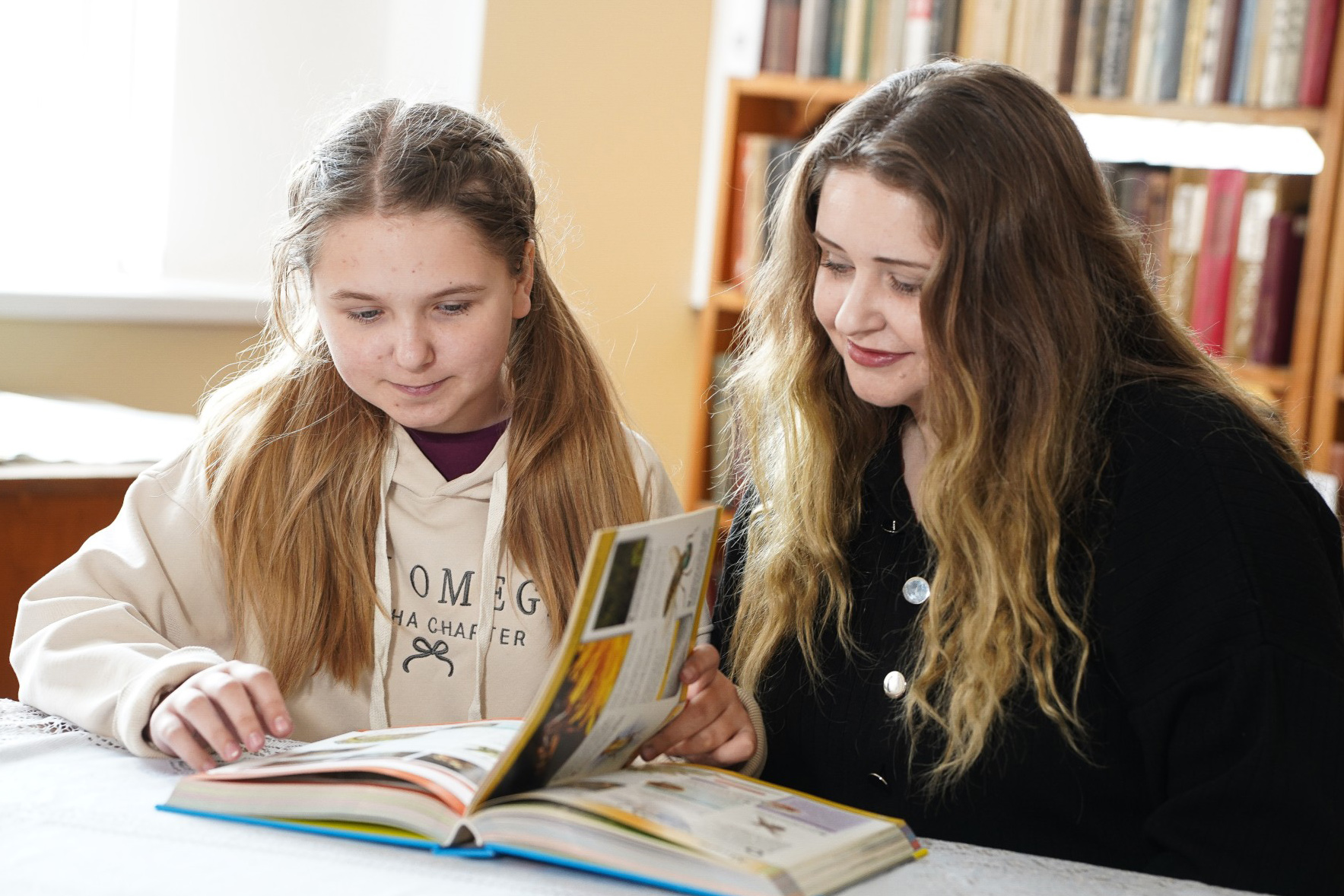In the heart of Ma’rib’s displacement camps, a football tournament organized by International Organization for Migration offers youth like Basheer a rare sense of connection, purpose, and hope amid hardship.
IOM
In April 2023, conflict erupted in Sudan, displacing nearly 15 million people and creating the world's largest internal displacement crisis. Despite the profound devastation and dire humanitarian needs—where over 25 million people face hunger and funding is critically low—Sudanese people continue to display resilience and strength. They maintain their hopes and dreams amid their struggles for dignity, peace, and the possibility of returning home. The narrative emphasizes the importance of recognizing their humanity and the urgent need for global support to alleviate their suffering. Even in darkness, the people of Sudan persist in their search for light.
Fleeing war-torn Ukraine, Olga and Eva found safety and healing in Moldova, where a local library became their sanctuary, nurturing friendship, learning, and a fresh start.
As the sun rises over the Maidimu internally displaced persons site, women and girls gather in a safe space shelter created for them. Among them is Tsige Mebrthatom, a mother of six who has faced immense hardship but finds strength in these weekly gatherings. Tsige fled her home in Kefta Humera after losing her husband during the conflict in Northern Ethiopia, traveling on foot for five days to reach the Endabaguna camp. Once a thriving merchant in Addis Ababa, her hopes for a fresh start were shattered by the outbreak of conflict in Tigray. Now living in Maidimu, Tsige is one of over 5,000 displaced individuals. Learning traditional crafts has helped Tsige reclaim her identity and serve as a source of strength and inspiration for her children.
Around the world, Ramadan is a time to come together as a family. It represents the warmth of home, sharing a good meal and enjoying a variety of food. But for millions of Syrians still displaced 14 years after the conflict began, this Ramadan comes with the heavy burden of poverty and hunger. Mixed feelings of hope and wariness pervade their war-torn nation as it embarks on its path to peace. Over 7 million people remain internally displaced, most of them women and children. For years, humanitarian aid has been their only lifeline. Yet, dwindling resources make access to even basic needs a daily struggle, let alone the joyful Iftars they remember. This is especially challenging for women-led households.
Venezuelan doctors, overcoming significant challenges, contribute to Peru's healthcare system through a training program supported by IOM, fostering integration and collaboration.
Ulukbek and Gulkayir’s entrepreneurial journey in Kyrgyzstan represents hope and resilience, as they turn their savings from seasonal work in the UK into a children's store.
Dr. Tsebaot Meles, a young Ethiopian doctor, turned a distressing personal experience into a mission to transform lives. During a visit to Sekota, a small town in Ethiopia's Amhara region, Tsebaot faced an unsettling challenge when she tried to purchase sanitary pads. “I got my period and went to a local shop with my sister,” she recalls. “To our shock, the male shopkeeper refused to help, reprimanding us for daring to request such an item. He insisted they don’t sell such things there.” Desperate, Tsebaot resorted to cutting up a bathroom towel for use as a sanitary pad. The incident ignited a passion within her to address this critical issue. She began researching how to start a company that could make a difference and later founded Ngat Reusable Sanitary Solution, a social enterprise committed to empowering women and girls in underserved areas.
Haiti, grappling with gang violence, economic collapse, and political instability, faces a severe humanitarian crisis, worsened by the influx of deported families and limited resources.
As the sun sets over the Caribbean, Union Island's mangrove ecosystems tell a stark story of climate change's impact. Hurricane Beryl, the earliest recorded Category Five hurricane in the Atlantic, has devastated the region, displacing thousands and plunging communities into despair. Union Island, which hosts the largest mangrove ecosystem in the Grenadines, has seen 90 percent of these vital coastal forests damaged. Kristy Shortte has worked tirelessly with Sustainable Grenadines Inc. to restore this habitat, crucial for marine life and as a buffer against storms. The loss of six hectares of mangroves threatens biodiversity, home to over 25 species of birds and rare green turtles. Despite contributing less than one percent to global emissions, Caribbean communities face significant climate disruptions, leading to increased displacement as they seek safer ground.
Families anxiously await much-needed aid distributions in the heat of Trinidad and Tobago. Maria, a 31-year-old mother of four, came to the island seeking a better future after leaving her Indigenous Warao community in Venezuela in 2019 due to food and medicine scarcity. Once an administrative assistant, Maria now hopes to find work as a housekeeper, aiming for a wage that surpasses her previous income. Living in a makeshift hut with seven other Venezuelan families, Maria feels the burden of her situation. “At least a day’s work allows us to eat and send money back home,” she explains. Over 36,000 Venezuelans have migrated to Trinidad and Tobago, often facing exploitation and discrimination.
International Organization for Migration’s mobile clinic in Port-au-Prince offers essential healthcare to over 5,000 displaced individuals, amidst ongoing gang violence and instability.
In Trinidad and Tobago, women united by a shared dream, are learning sewing skills to enhance their economic stability.
Amid ongoing violence and displacement in Port-au-Prince, communities in sites like Virginie sans Peur and Parc 10 demonstrate remarkable resilience, rebuilding their lives through mutual support and solidarity.
The Degaan Bile project demonstrates the power of collaboration and innovation in empowering Somali farmers to adapt to climate change and build a sustainable future.















